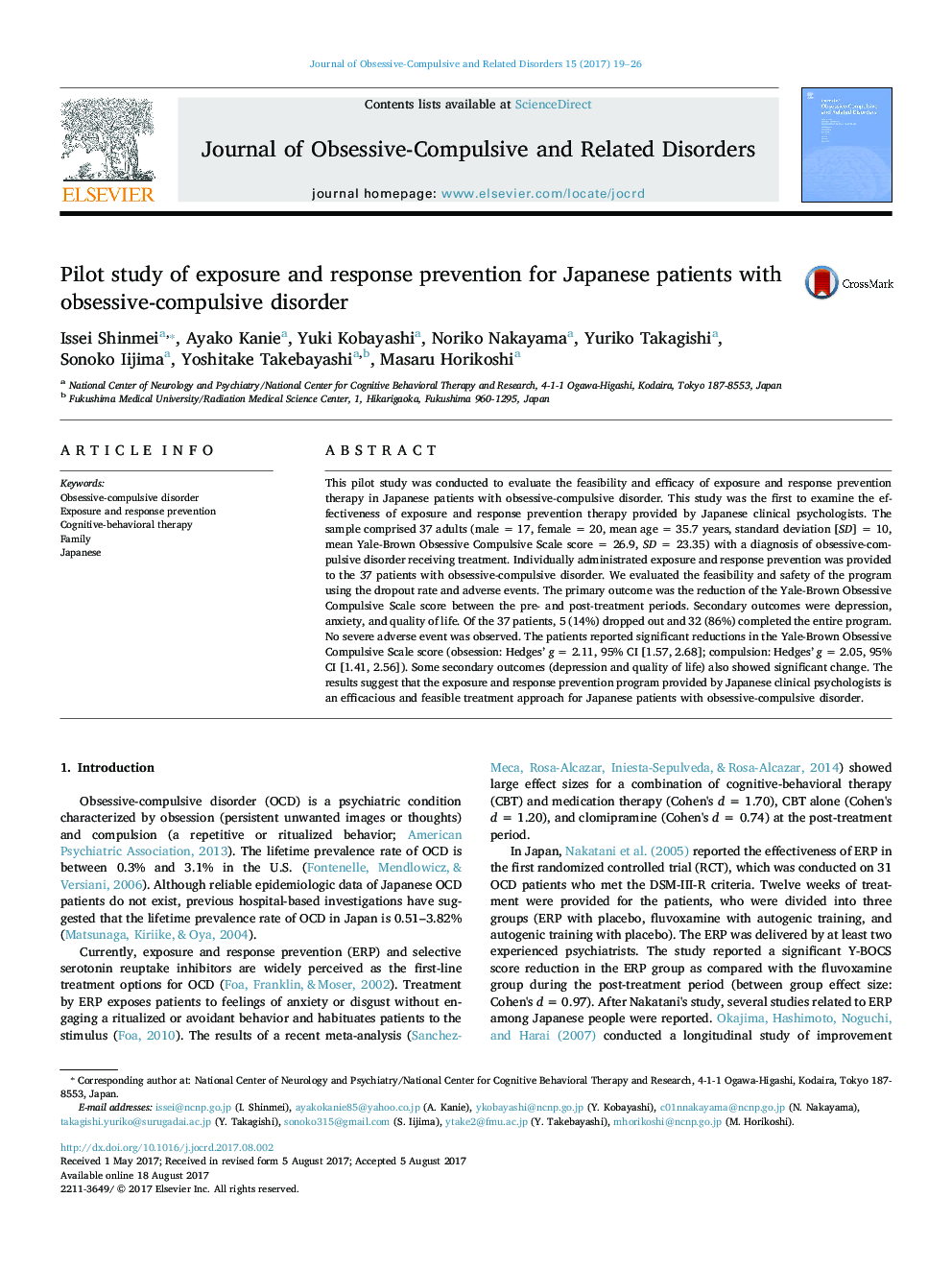| Article ID | Journal | Published Year | Pages | File Type |
|---|---|---|---|---|
| 5039276 | Journal of Obsessive-Compulsive and Related Disorders | 2017 | 8 Pages |
This pilot study was conducted to evaluate the feasibility and efficacy of exposure and response prevention therapy in Japanese patients with obsessive-compulsive disorder. This study was the first to examine the effectiveness of exposure and response prevention therapy provided by Japanese clinical psychologists. The sample comprised 37 adults (male = 17, female = 20, mean age = 35.7 years, standard deviation [SD] = 10, mean Yale-Brown Obsessive Compulsive Scale score = 26.9, SD = 23.35) with a diagnosis of obsessive-compulsive disorder receiving treatment. Individually administrated exposure and response prevention was provided to the 37 patients with obsessive-compulsive disorder. We evaluated the feasibility and safety of the program using the dropout rate and adverse events. The primary outcome was the reduction of the Yale-Brown Obsessive Compulsive Scale score between the pre- and post-treatment periods. Secondary outcomes were depression, anxiety, and quality of life. Of the 37 patients, 5 (14%) dropped out and 32 (86%) completed the entire program. No severe adverse event was observed. The patients reported significant reductions in the Yale-Brown Obsessive Compulsive Scale score (obsession: Hedges' g = 2.11, 95% CI [1.57, 2.68]; compulsion: Hedges' g = 2.05, 95% CI [1.41, 2.56]). Some secondary outcomes (depression and quality of life) also showed significant change. The results suggest that the exposure and response prevention program provided by Japanese clinical psychologists is an efficacious and feasible treatment approach for Japanese patients with obsessive-compulsive disorder.
